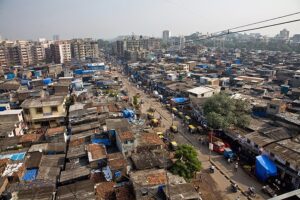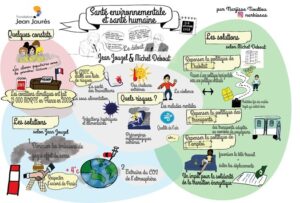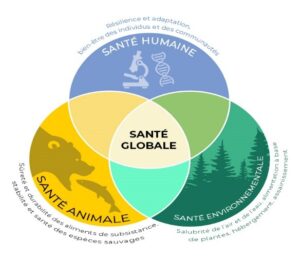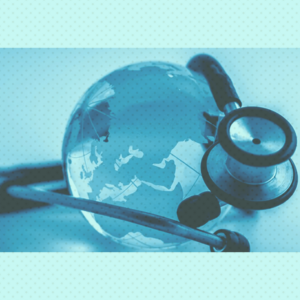Health geography is the application of geographic information, perspectives, and methods to the study of health, disease, and health care. The geography of health cuts across several areas of geography and is located at the crossroads of the geography of diseases and the geography of care. Its purpose is the social and spatial analysis of the provision of care and the use of care, inequalities in the health of populations, health determinants likely to contribute to the promotion or deterioration of their health, the distribution diseases. It situates the pathology and the patient in its global space by analyzing the role and consequences of health facts on human activity.

Furthermore, urbanization is one of the main global trends of the 21st century which has a major impact on health. Currently, more than 55% of the world’s population lives in urban areas and this proportion is expected to reach 68% by 2050. As this development will mainly affect developing countries, the world now has a unique opportunity to shape the direction of urbanization and other important aspects of urban development in ways that protect and promote health. Hence the concept of urban health. Urban health refers to the health of populations living in urban environments, and how the characteristics of cities impact their physical, mental and social well-being. This includes factors such as air quality, access to health services, food security, physical activity, green spaces, etc. Thus, urban health is understood as the overall health (mental, social, physical) of people living in urban areas.

The geography of health and urban health being the poor parents of teaching and research in Cameroon, we propose to make them more accessible by answering your questions on the concepts, tools, techniques and methods specific to these subsections. -disciplines. Also to assist young researchers in the “definition” of their dissertation and thesis subjects on the one hand, and on the other hand to guide them in methodological choices.
In this era where we are looking for instant answers, it is important to ask questions to define the scope of a subject, a theme, identify the obstacles to carrying out a project, or move on. to research action in an informed manner. This page  is therefore intended for you, because asking questions stimulates learning and the exchange of ideas, fuels innovation and improvement of performance in addition to alleviating misunderstandings. By providing reasoned answers and sometimes supported by research results, the Master and Pioneer of the Geography of health and urban health in Cameroon, Professor Nguendo-Yongsi wants to establish with you a climate of trust which will then allow you to analyze problems more deeply and resolve them effectively.
is therefore intended for you, because asking questions stimulates learning and the exchange of ideas, fuels innovation and improvement of performance in addition to alleviating misunderstandings. By providing reasoned answers and sometimes supported by research results, the Master and Pioneer of the Geography of health and urban health in Cameroon, Professor Nguendo-Yongsi wants to establish with you a climate of trust which will then allow you to analyze problems more deeply and resolve them effectively.
To post your question(s) (3 maximum), follow the process below :

La dernière édition de la nuit de la Géographie 2024
La Nuit de la Géographie est un événement annuel organisé simultanément à travers le monde pour mettre en valeur la géographie et les géographes. Il

Journée mondiale de la santé 2024: « Notre santé, nos droits » -ESGU
Le droit fondamental à la santé de millions de personnes est de plus en plus menacé à la fois en Europe selon l’OMS et à

La dernière édition de la nuit de la Géographie 2024
La Nuit de la Géographie est un événement annuel organisé simultanément à travers le monde pour mettre en valeur la géographie et les géographes. Il

Journée mondiale de la santé 2024: « Notre santé, nos droits » -ESGU
Le droit fondamental à la santé de millions de personnes est de plus en plus menacé à la fois en Europe selon l’OMS et à